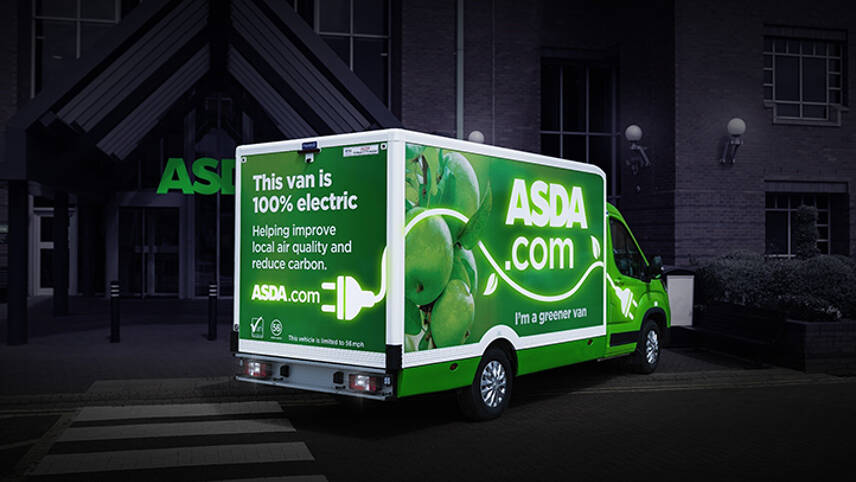Register for free and continue reading
Join our growing army of changemakers and get unlimited access to our premium content

Asda joins the likes of Sainsbury’s in converting the entirety of its delivery fleet to EVs at select stores
EVs will deliver groceries from Asda’s Gillingham Pier, Old Kent Road, and Sheffield Chaucer stores, providing a low-emissions delivery option for more than 345,000 households residing within the store catchment areas.
With a range of up to 120 miles per charge, the vehicles require approximately seven hours to recharge. The adoption of these electric vehicles is projected to reduce over 400,000kgs of CO2 emissions annually.
Asda’s senior vice president of e-commerce, Simon Gregg, said: “Using electric rather than diesel delivery vehicles will lead to huge reductions in our emissions and go a long way to achieve our goals of halving our greenhouse gas emissions by 2030 and becoming carbon net-zero by 2040.”
The UK’s second-largest supermarket plans to convert two more of its 640 stores, in Cardiff Bay and Leith, to use electric fleets for their delivery operations by the end of the year.
By taking this step, Asda marks the initial phase of its goal to eliminate diesel vehicles entirely from its grocery home delivery fleet by 2028.
These initiatives form a part of the retailer’s broader strategy to reduce its greenhouse gas emissions by 50% by 2030, aligning with its Courtauld commitments, and ultimately becoming net-zero by 2040.
Earlier this year, Asda announced a partnership with Wayve to begin the UK’s largest autonomous grocery home shopping delivery trial, providing groceries to a catchment area of more than 170,000 residents across 72,000 households in London.
Wayve’s autonomous vehicles have been integrated into Asda’s current online delivery system at the Park Royal superstore in West London.
According to the latest ESG report from Asda, the company’s Scope 1 and 2 emissions for 2021 amounted to 624,679tCO2e, indicating a 5% reduction compared to 2020 and an overall decrease of 35% since the baseline year of 2015.
Asda joins the likes of Sainsbury’s in converting the entirety of its delivery fleet to EVs at select stores. In May 2023, Sainsbury’s introduced an all-electric fleet at its Nine Elms London store.
A total of 12 vans making up its Nine Elms London delivery fleet have been replaced by pure-electric models. The store makes some 2,000 to local homes each week using the vans and Sainsbury’s is anticipating 57 tonnes of mitigated CO2e each year because of the use of EVs. 100% renewable electricity will be used to charge the vans.


“100% renewable electricity will be used to charge the vans”.
But all electricity is fed to a common provider, but is paid for as if it were all renewable.
I wonder if the amount paid for as “renewable”, equates with the actual generation of renewables??
We should remember that renewables rely considerably on Nature, and are thus not reliable, a few days with no wind calls very much on conventional generation.